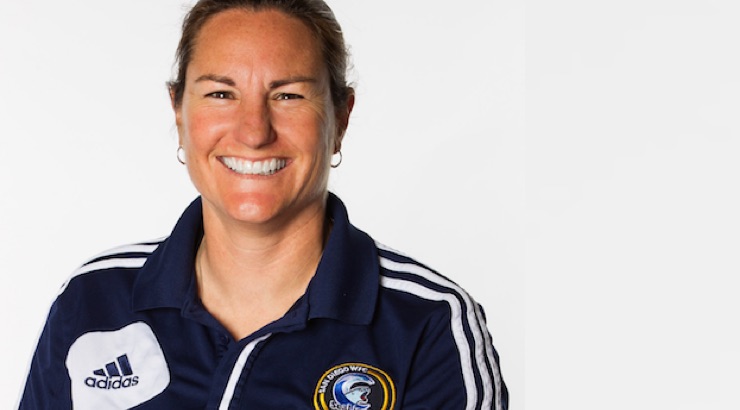WPSL San Diego SeaLions Interview with Owner Lu Snyder
It is, for now, still rare that a woman owns a big-time soccer club but Lu Snyder has always been a trail blazer, paving a path for Women In Soccer.
The San Diego SeaLions, whose first season began in 1988, is one of the oldest women’s soccer clubs in the world and have been a member of the WPSL since the WPSL’s 1998 inaugural season. They are known and respected nationwide for putting on a highly-professional match-day experience for soccer fans. The three-time WPSL champion SeaLion, are excited to get back on the pitch this spring as they look to make another run at a championship.
SoccerToday spoke with Owner and Assistant Coach Lu Snyder on the success of the San Diego SeaLions and her experience in the beautiful game.
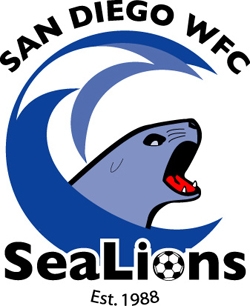
Soccer News: Striving for excellence and success on and off the pitch — the San Diego SeaLions will be seeking to add a fourth WPSL National Championship to their trophy case when the 2017 Women’s Premier Soccer League (WPSL) season kicks off this May.
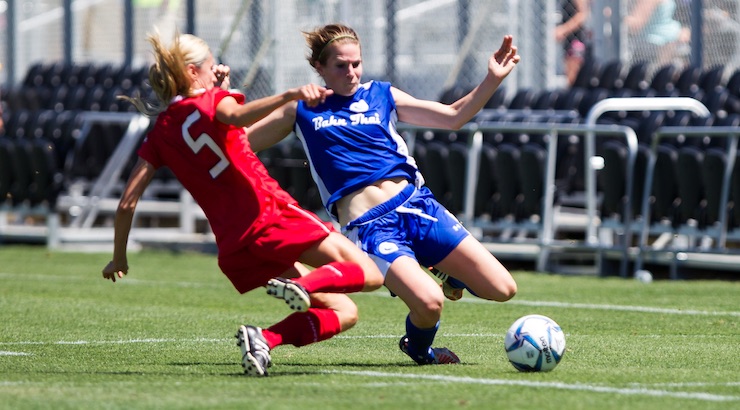
Six months ago the SeaLions were preparing for their 2016 championship match versus the Boston Breakers Reserves, and although they fell just short of a fourth title then, San Diego’s top-level women’s soccer team is preparing to return to the pitch for their 30th season.
Founded in 1997 with a handful of teams by WPSL Commissioner Jerry Zanelli, the league now fields over 110 teams with the league’s success attributed to his hard work and the efforts of those dedicated people on his team.
One of the people who works tirelessly behind the scenes is San Diego SeaLions Owner and Assistant Coach Lu Snyder. Involved with the WPSL for over 25 years, Synder was originally the goalkeeper for the San Diego SeaLions.
Now, Snyder is one of the women who makes up the 16% of the league’s female owned teams.
Synder is also Associate Commissioner Registrar for the WPSL.
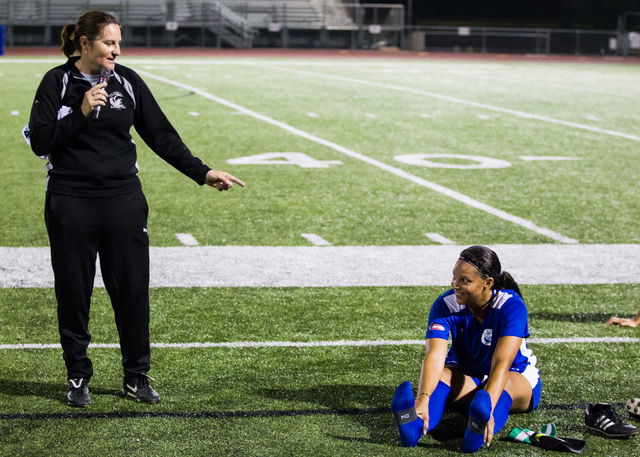
SoccerToday’s Diane Scavuzzo interviewed Snyder on being a woman in the game and her successful tenure with the WPSL SeaLions.
Diane Scavuzzo: When did you first start playing soccer and when did you realize you wanted to be a goalie?
Lu Snyder: I started playing soccer when I was 5 years old. My grandmother took me to watch my cousins play. They were 5 and 6 years older and after watching them, I told her that I wanted to play too.
My mom signed me up to play soccer and I was the only girl on the team — but it didn’t matter. I was a tom-boy.
I don’t know if I realized then that I wanted to be a goalie. As a kid, I also played softball and basketball, so I had good hand-eye coordination. When I was 10-years-old, my recreational soccer team needed someone to play goalie, so I did — but only part time. I wanted to score goals too.
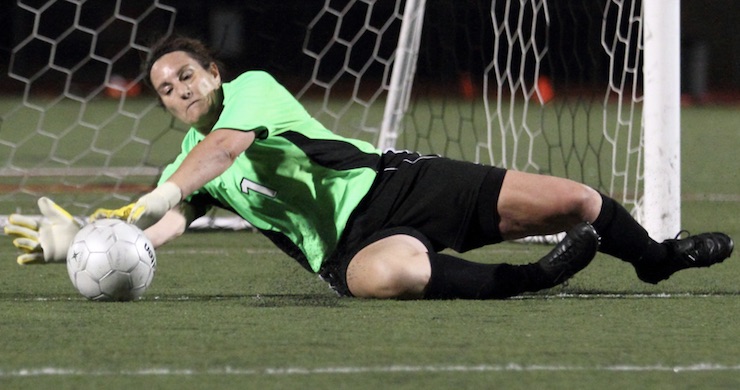
I split most of my youth soccer career between the goal and the field. It wasn’t until high school that I became a “full time” goalkeeper. But I had the benefit of having been able to develop my foot skills as well as my goalie skills.
Diane Scavuzzo: When did you join the San Diego SeaLions?
Lu Snyder: I joined the SeaLions back in 1991. They had already been around for a few years. We were called Surf back then, we had a small affiliation with Surf Club — they gave us jerseys.
Diane Scavuzzo: When did you stop playing goalie?
Lu Snyder: I guess I officially played GK for the SeaLions for about 20 years. I don’t know if I ever really stopped playing GK for the SeaLions — the players still make me go in goal at practices or scrimmages. And I still play goalie in local rec leagues. You never really quit being a goalkeeper.
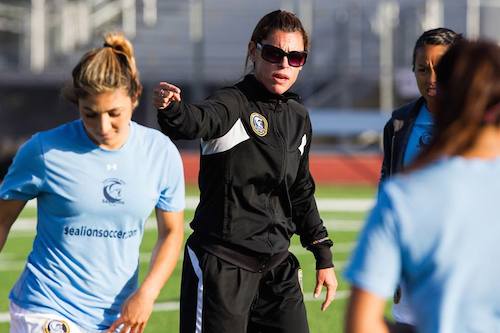
Diane Scavuzzo: What is your most memorable moment as a GK?
Lu Snyder: Winning Regional at U16 was pretty memorable. We went into PKs, 10 kickers. I saved the last one and we got the win.
Another highly memorable time was losing to Stanford my Freshman year at SDSU only 1-0. Stanford was a big-time soccer power and we were just in our second year as a varsity NCAA sport. Even though we lost, it gave our team creditability.
Saving Joy Fawcett’s PK in the 1996 Las Vegas Silver Mug soccer tournament is right up there too as one of my most memorable moments.
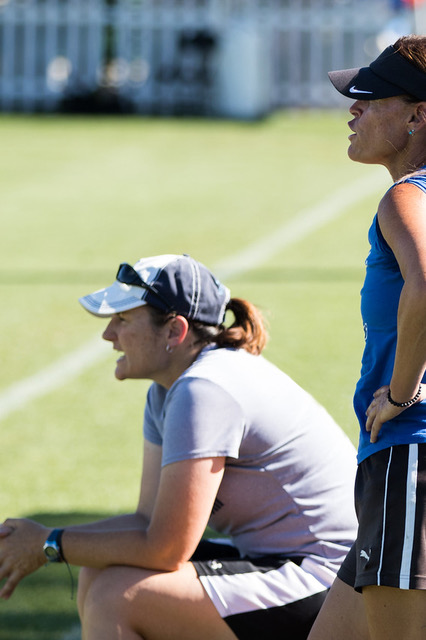 Diane Scavuzzo: When did you first become a coach? What do you like about coaching?
Diane Scavuzzo: When did you first become a coach? What do you like about coaching?
Lu Snyder: In 1992, a friend was coaching at Poway High School. They needed a Girl’s Freshman Coach and she asked me to join them. The next year, I got promoted to JV Girls Head coach. I coached there for 4 years.
I also coached from 1996 to 1998 at United State International University with Ray Talia and from 2006 to 2013 with Brian Quinn at the Bishop’s School in La Jolla. I then rejoined Talia when he started the San Diego Fusion in Tierrasanta, coaching the very first two teams of the club.
One of the coolest things about coaching is seeing the players and teams develop. When you go out to the first practice you think “Oh boy, where to start” but by the end of the season, when everything is coming together, there is a great sense of accomplishment.
Diane Scavuzzo: When did you become an owner? Do you see any challenges unique to being a woman in the world of soccer?
Lu Snyder: I took over the SeaLions in 2004.
There are challenges just being a woman in the world, let alone in soccer.
Women are nurturers by design. It’s woven into our DNA. Who do you run to when you get hurt? Mom. So, in the soccer world, many coaches — mostly male, not to be sexist –try to make the female soccer player tough and strong.
“Hit them hard” is a phrase I hear a lot, but that only creates a player who goes out and tries to knock people around. Instead of knocking the ball around. Female players are easy to coach — if you take the time to know how to do it.
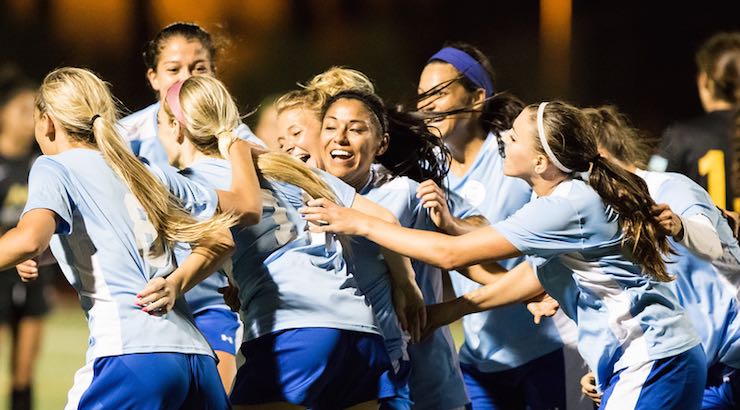
Diane Scavuzzo: As a team in the WPSL, the SeaLions have had a long history — What makes the San Diego SeaLions special?
Lu Snyder:
There is a big difference when we are playing at home versus when we are on the road. At home, we regularly have several hundred fans, and you can feel the excitement down into your core. It motivates you.
I think what makes the SeaLions special is that we try to make our games events, not simply soccer games.
We have an amazing mascot named Sammie the SeaLion. We always have live singers for the National Anthem. We have souvenir give-a-ways for every game. We have half-time events and special activities for the kids. And most important, the kids get to come onto the field at the end and meet the players.
We want our fans to have fun and to connect with us, and vice-versa, win, lose or draw. That is what is most important for us.
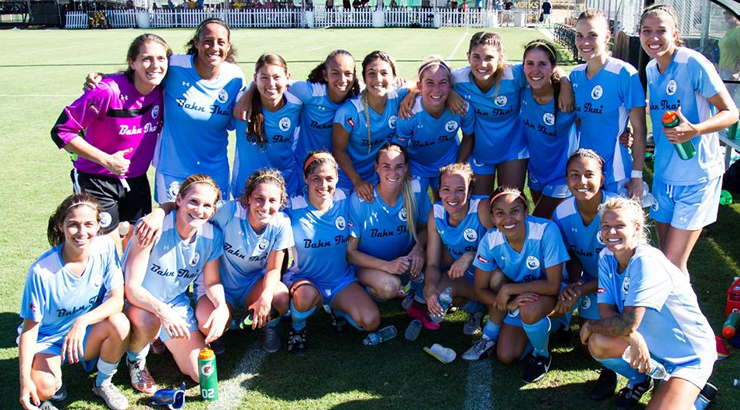
Diane Scavuzzo: The SeaLions were one of the founding clubs in the WPSL — what makes the WPSL so successful?
Lu Snyder: When the WPSL was formed, the only soccer league for women was the W-League. Most of the W-League teams were on the East coast, and had very high franchise fees. The travel costs alone made it just too expensive to compete there as a West coast team.
Jerry Zanelli approached us about creating a new league on the west coast. We met in a small coffee shop in Northern California and developed the WPSL — never thinking it would grow to over 110 teams.
The WPSL has become so successful because Jerry’s passion for women’s soccer. His dedication to the women’s game is mind-blowing.
The WPSL is also unique, we don’t have a men’s side to distract our efforts of growing the game for women.
Unlike the W-League, which was simply a small part of a larger male league, we can focus on women in soccer. And we took that a step further with the SeaLions: our Mission Statement is to provide soccer coaching, playing, and business and management opportunities for women.
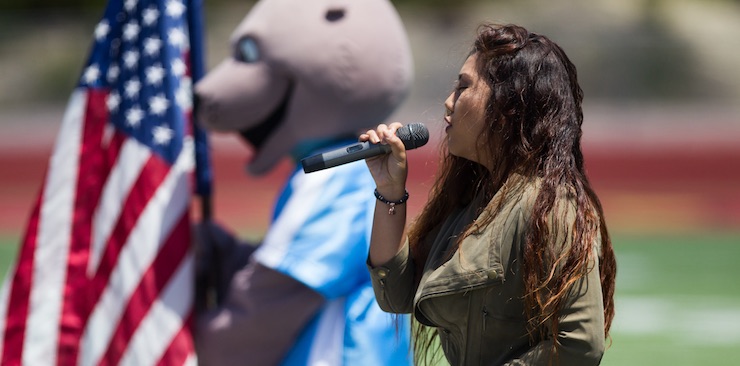
Diane Scavuzzo: What inspires you?
Lu Snyder: The thing that inspires me the most is seeing the kids and adults have the same passion and love for the game as I do. I love it when I see the young kids out in the parks playing pick-up games on their own. Or coming to the SeaLions games — rushing onto the field at halftime to take shots and then again after the games, wanting autographs from the players — then running around on the field playing keep away with the soccer ball. It’s inspiring.
 Diane Scavuzzo: What is your role in the WPSL?
Diane Scavuzzo: What is your role in the WPSL?
Lu Snyder: I wear many hats when it come to the WPSL. I am Associate Commissioner, Registrar and I run the league website.
Diane Scavuzzo: What needs to change so that more women can make it the world of soccer?
Lu Snyder: Women.
Women need to change and help each other succeed.
I know this might sound strange. Women can be very jealous of each other, and on the other hand we tend sometimes to feel that we are not good enough. In our society, women naturally gravitate towards handling the everyday family tasks. If we really want to get the corporations to start supporting women’s sports, we do have the power to do it.
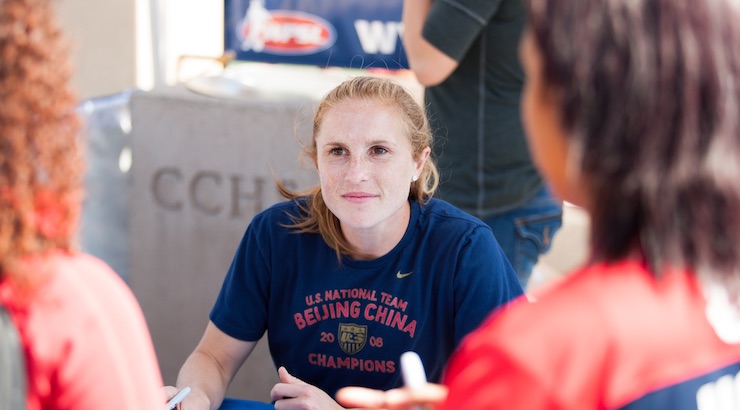
San Diego SeaLion games are events for the whole family. Here is US Soccer National team player Rachel Buehler signing autographs before the WPSL match – photographed by Aaron Jaffe
Diane Scavuzzo: What do you think about the state of women’s soccer in the USA? Is it improving? Did Title IX help or hurt?
Lu Snyder: The state of women’s soccer in the USA is still the best in the World. But other countries are catching up — which makes it exciting. I think individual players are improving, but there is still an emphasis in winning — so tactical development is often put on the back burner. I believe the emphasis on winning can and should wait until the kids are much older.
Diane Scavuzzo: What can be done to encourage more girls to dream big — and to perhaps make a life in the soccer world?
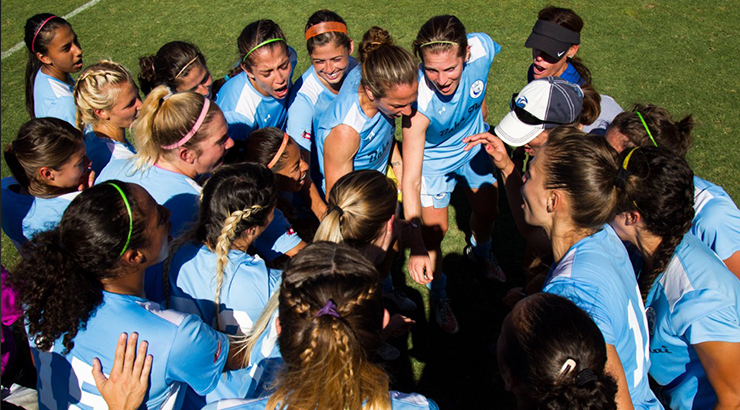
Lu Snyder: Giving them the best opportunities possible, but don’t force it on them. I’ve seen a lot of talented players wanting to be Mia Hamm, Brandi Chastain (okay, I’m dating myself), Abby Wambach, Alex Morgan, and Hope Solo, but by the time they get through college they are so burnt out that they don’t even want to look at a soccer ball.
Soccer needs to be fun, kids should want to play. Not have to play.
Diane Scavuzzo: Where did you play soccer when you were a youth player? How has soccer changed, if it has, since you became involved?
Lu Snyder: I grew up playing soccer in the Sacramento area. I played for the San Juan Spirits Soccer Club.
Today, the youth soccer players are better. Youth players as young as 6-year-olds are doing moves that I can’t do now. There is better coaching now than there was when I started playing and more high level opportunities.
Diane Scavuzzo: What do you think is the most important life lesson that you’ve learned so far?
Lu Snyder: To get up and try again. You are not going to win all the games. You just have to keep working on it and trying.
